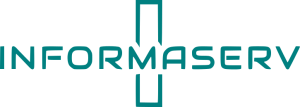Glossary: International Teaching Terms
Educators around the world use a variety of phrases and acronyms. Add yours to this glossary.

Special | A | B | C | D | E | F | G | H | I | J | K | L | M | N | O | P | Q | R | S | T | U | V | W | X | Y | Z | ALL
D |
|---|
D2LD2L stands for Desire2Learn. It is an LMS, or learning management system, similar to Moodle. It is used in K-12 and higher education settings. | ||
dactyloscopyThe forensic analysis and comparison of fingerprints as a means of identification of individuals. | |
DACUMDeveloping a curriculum. a developing training based on a job profile | |
dashboardAn LMS dashboard is an interactive and intuitive view that enables you to get a single view of all the learning activities, courses in the system, learning content, portfolio and more. | ||
Data Documentation Initiative (DDI)A project of the social science community to develop a standardized XML markup and representation for codebooks, the primary metadata describing social science data sets. | |
DATABASEA database is an organized collection of data. The data are typically organized to model relevant aspects of reality in a way that supports processes requiring this information. For example, modeling the availability of rooms in hotels in a way that supports finding a hotel with vacancies. | ||
database management system (DBMS)A computer application designed to control the storage, retrieval, security, integrity, and reporting of data in the form of uniform records organized in a large searchable file called a database. The range of available DBMS software extends from simple systems intended for personal computers to highly complex systems designed to run on mainframes | |
DBMSDatabase management systems (DBMSs) are specially designed applications that interact with the user, other applications, and the database itself to capture and analyze data. A general-purpose database management system (DBMS) is a software system designed to allow the definition, creation, querying, update, and administration of databases. Well-known DBMSs include MySQL, PostgreSQL, SQLite, Microsoft SQL Server, Microsoft Access, Oracle, SAP, dBASE, FoxPro, IBM DB2, LibreOffice Base and FileMaker Pro. | ||
ddlData definition language | |

